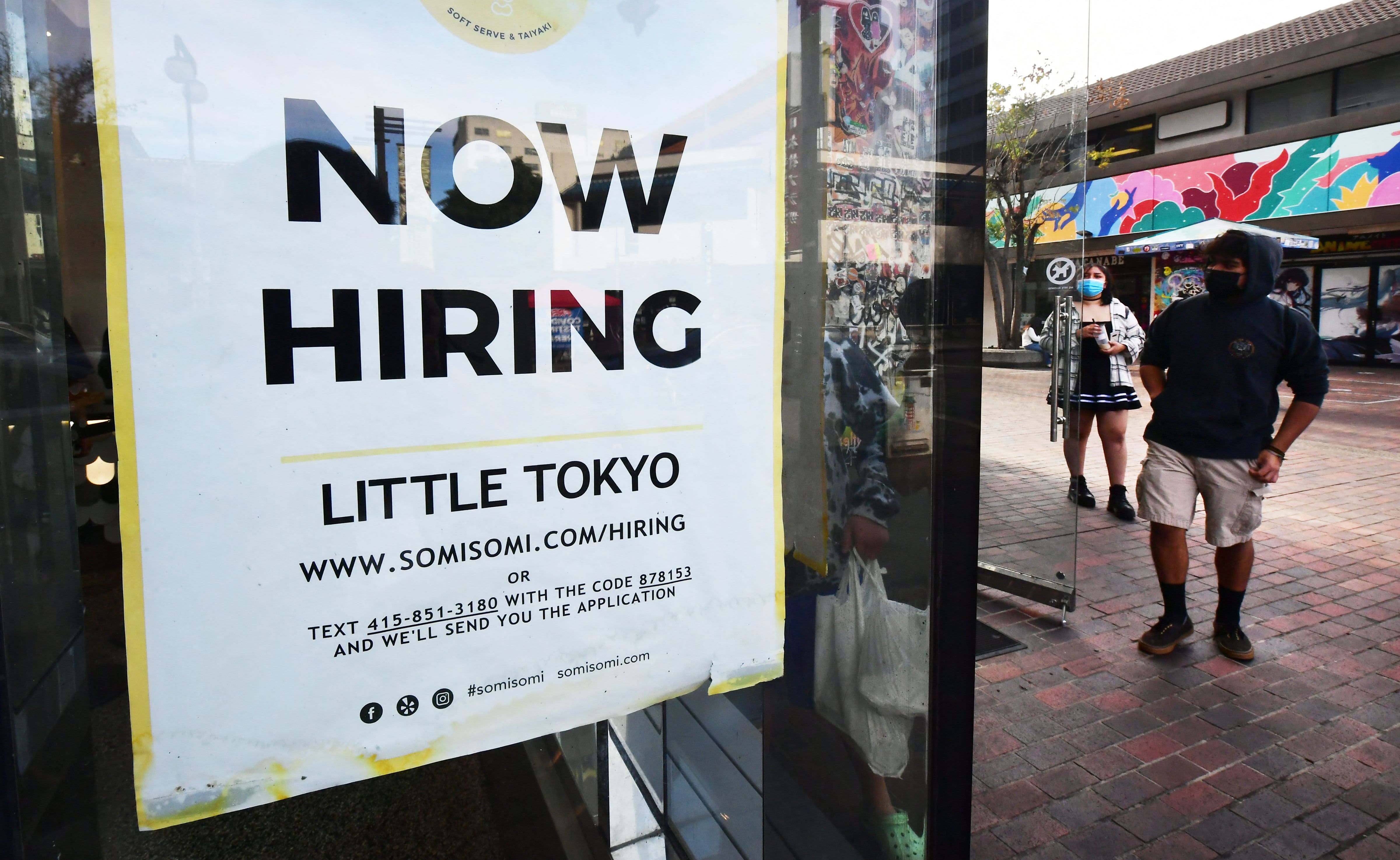
A “now hiring” sign is posted in the window of an ice cream shop in Los Angeles, California on January 28, 2022.
Frederic J. Brown | AFP | Getty Images
Initial filings for unemployment claims totaled a bit less than expected last week as companies looked to overcome the impact of the omicron spread.
Claims for the week ended Jan. 29 totaled 238,000, a touch lower than the 245,000 Dow Jones estimate, the Labor Department reported Thursday. That was also a decline from the previous week’s upwardly revised 261,000.
The report closes out a tough January in which millions of Americans lost work due to the Covid impact. With cases declining sharply over the past two weeks, economists are optimistic that the trend will reverse itself.
Claims have turned higher after briefly dipping below 200,000 in early December and posting their lowest total in more than 50 years.
Continuing claims, which run a week behind the headline number, showed a substantial decrease, falling 44,000 to 1.63 million. The four-week moving average for claims, which helps adjust for weekly volatility, slipped to 1.62 million, the lowest total since Aug. 4, 1973.
The total of those receiving benefits under all programs declined to 2.07 million, a drop of 73,205, according to data through Jan. 15. That compares to 18.5 million from a year ago and has dropped substantially as extended benefits have expired for the unemployed.
The numbers came the day before the BLS releases its closely watched January nonfarm payrolls report, which is expected to show a gain of 150,000 though some economists think the U.S. actually may have lost jobs for the period.
In other economic news Thursday, productivity surged 6.6% in the fourth quarter of 2021, well above the estimate of 4.4%, according to preliminary figures from the Bureau of Labor Statistics. At the same time, unit labor costs rose just 0.3%, well below the 1% estimate.
Unit labor costs are measured as the difference between hourly compensation, which rose 6.9%, and productivity. The smaller-than-expected gain provides a sign that productivity is helping offset inflation running at its fastest pace in nearly 40 years.




